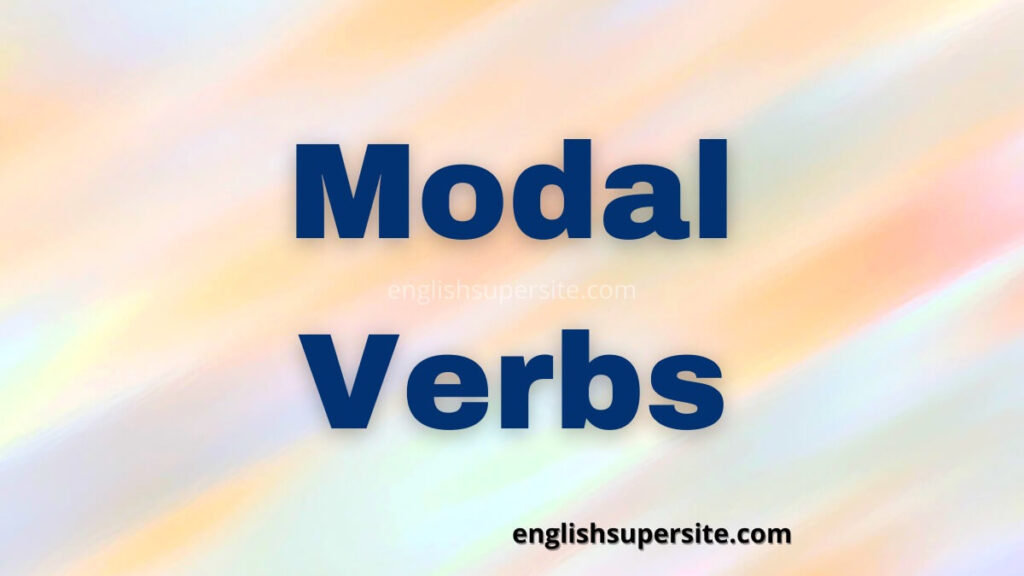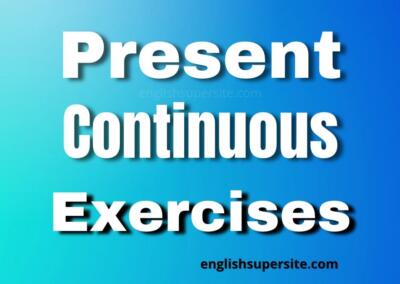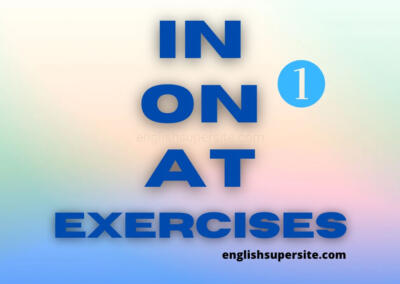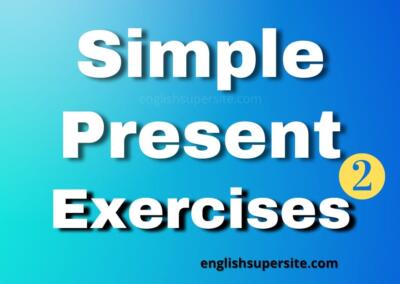
What are Modal Verbs?
Modal verbs are auxiliary verbs in English that are used to express the speaker’s attitude or opinion about the likelihood, potential, or necessity of an action or event.
In English, some common modal verbs include can, could, may, might, must, shall, should, will, and would.
Modal verbs are used to express various levels of meaning, such as ability, obligation, possibility, probability, and permission, among others.
When to use Modal Verbs?
The modal verb “can,” for example, is used to communicate ability or possibility, as in the sentences “I can speak Italian” and “It can rain tomorrow.” The modal verb “must” express necessity or obligation, as in the following examples: “I must finish my project by the end of the day.” and “You must turn off your phone.”
Modal verbs are distinguished by the absence of a past tense form and the fact that they are often followed by the base form of a verb rather than the infinitive.
They are also frequently employed to modify the meaning of the primary verb in a sentence when combined with additional verbs to make verb phrases.
Here is a brief list of the basic modal verbs in English, along with some explanations of how they’re used:
Examples of Modal Verbs
Can
Can is used when we want to express ability or possibility.
- I can speak Italian.
- Can you speak Italian?
- I can’t dance very well.
- She can run amazingly fast.
- He can’t run at all!
- It can rain tomorrow.
- Can you please pass me the salt and pepper?
Could
Could is used to express past ability or possibility, or to make a polite request.
- I could speak Italian when I was younger.
- Could you speak Italian when you were younger?
- I couldn’t dance last year.
- She could run amazingly fast when she was younger.
- Could you pass me the salt and pepper, please?
- Can you imagine that he couldn’t pass the exam?
May
We use may when we want to express possibility or permission.
- May I sit here with you?
- May I go to the bathroom, please?
- It may rain tomorrow.
- You may leave now!
Might
Might is used to express possibility or probability.
- They might be late.
- It might rain tomorrow.
Must
We use must when we want to express necessity or obligation.
- I must finish my homework.
- You must turn off your phone.
- We must finish this project on time.
- Be quiet, must you always be so loud?
Shall
We use shall when we want to express a suggestion or offer or to ask for someone’s opinion.
- Shall I bring my umbrella?
- Shall we go for a walk?
- Good evening, shall we dance?
Should
Should is used to express a recommendation, or to show what is expected or needed.
- You should study for your exams.
- We should recycle more.
- It is too late; we shouldn’t go there this time.
Will
We use will is used to express a really strong desire or determination, or to indicate that something is likely to happen.
- I would go to the beach if I had the time.
- Would you mind closing the window?
- Oh, I would go to the beach if I had the time.
Study Also:
Abbreviations Cohesion and Coherence Collocations Comparative Conditionals Frequent Errors Future Continuous Future Perfect Future Perfect Continuous Future Simple Homonyms Interjections Journaling Learn English Linking Words Logical Flow Past Continuous Past Perfect Past Perfect Continuous Past Simple Plural Present Continuous Present Perfect Present Perfect Continuous Present Simple Pronunciation Question Tags Quiz Quotes Simple Future Simple Past Simple Present Spelling Superlative Transition Words
Share with your friends!






